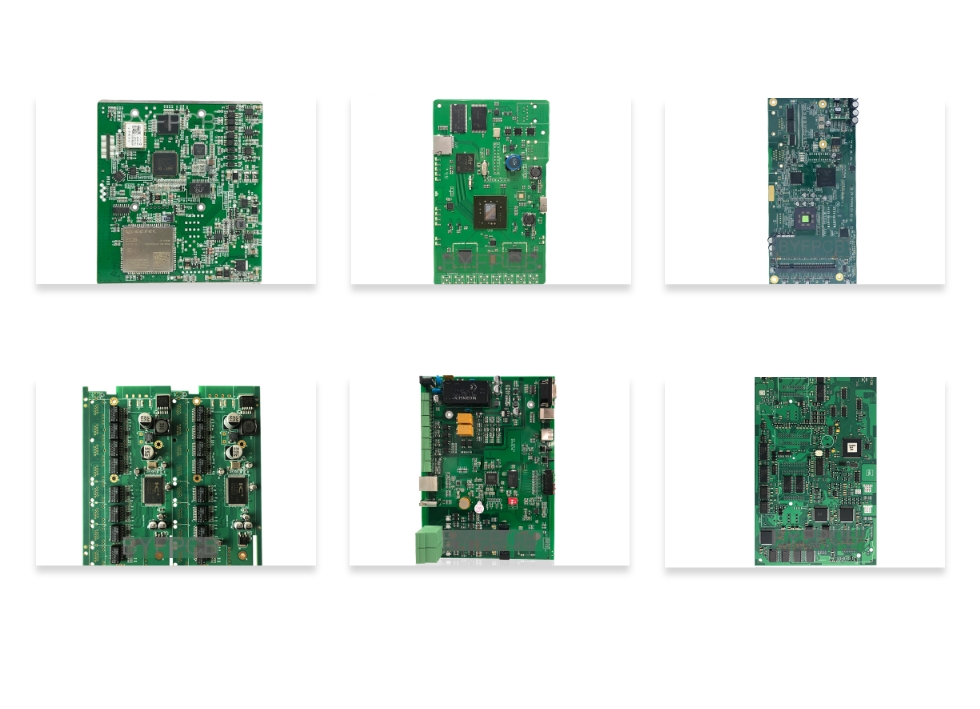Services
The PCBA (Printed Circuit Board Assembly) manufacturing process for industrial devices—like PLCs, motor controllers, HMI panels, industrial sensors, or automation gateways—emphasizes durability, long lifecycle, and robust performance. Here are the key points specific to the industrial sector:
🧩 1. Industrial-Grade Design Requirements
-
Wide operating temperature range: Often –40°C to +85°C or higher.
-
EMC/EMI immunity: Designed to comply with IEC standards like EN 61000.
-
Vibration and shock resistance: Must survive factory environments.
-
Long lifecycle parts: Components selected for 10–15+ years of availability.
🧾 2. BOM and Component Selection
-
Use industrial-grade components (e.g., industrial MCUs, isolated transceivers, power ICs).
-
Include ESD protection, signal isolators (opto or digital), surge suppressors.
-
Sourcing must ensure supply chain longevity and traceability.
🏗️ 3. PCB Fabrication
-
Multilayer boards (4–12 layers typical).
-
Reinforced substrates (FR4-TG170+, metal core, or polyimide).
-
High current and voltage isolation paths, wide creepage/clearance.
-
Controlled impedance if signal integrity matters (e.g., Ethernet, RS485).
🛠️ 4. SMT & Through-Hole Assembly
-
Surface Mount (SMT): High-density placement for MCUs, memory, interface ICs.
-
Selective soldering or wave soldering for rugged connectors, relays, terminals.
-
Mixed technology: SMT + THT often required in industrial assemblies.
🔍 5. Inspection & Quality Control
-
AOI (Automated Optical Inspection) for solder and placement accuracy.
-
X-ray inspection for BGAs, LGA, and power packages.
-
In-Circuit Testing (ICT) and/or Boundary Scan for electrical verification.
-
Functional Testing (FCT) under simulated industrial loads.
🔋 6. Power & Thermal Considerations
-
Industrial PCBs often handle 24V or higher.
-
Include DC-DC converters, isolated power supplies, and bulk capacitors.
-
Use of heat sinks, thermal vias, and possibly active cooling fans.
🔐 7. Firmware Programming & Communication
-
Preload firmware for control logic, fieldbus protocols (Modbus, CAN, EtherCAT).
-
Configuration/calibration for sensors, ADCs, signal thresholds.
-
Communication interface testing: RS232/RS485, Ethernet, USB, CAN, etc.
🧴 8. Coating & Protection
-
Conformal coating (acrylic, urethane, silicone) to protect from dust, moisture, corrosion.
-
Potting or epoxy encapsulation for harsh environments (IP65/IP67).
-
Optional shielding for EMI-critical designs.
📦 9. Traceability, Labeling, and Packaging
-
Each board gets a serial number, date code, and traceability ID.
-
Labels comply with UL, CE, RoHS, or customer specs.
-
Anti-static, vibration-proof packaging for shipping to factories or field installation.
